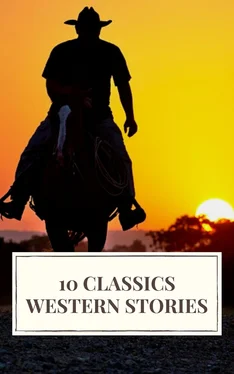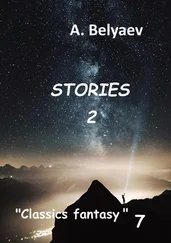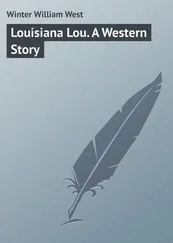“God help us!” said Cecil, setting his teeth. “I will dash my mission to the winds and fly with you. What if God does forsake us, and our souls are lost! I would rather be in the outer darkness with you than in heaven without you.”
His resolution had given way at last. But in such cases, is it not always the woman that is strongest?
“No,” she said, “you told me that your God would forsake you if you did. It must not be.”
She withdrew herself from his arms and stood looking at him. He saw in the moonlight that her pale tear-stained face had upon it a sorrowful resignation, a mournful strength, born of very hopelessness.
“God keep you, Wallulah!” murmured Cecil, brokenly. “If I could only feel that he would shelter and shield you!”
“That may be as it will,” replied the sweet, patient lips. “I do not know. I shut my eyes to the future. I only want to take myself away from you, so that your God will not be angry with you. Up there,” she said, pointing, “I will meet you sometime and be with you forever. God will not be angry then. Now farewell.”
He advanced with outstretched arms. She motioned him back.
“It will make it harder,” she said.
For a moment she looked into his eyes, her own dark, dilated, full of love and sadness; for a moment all that was within him thrilled to the passionate, yearning tenderness of her gaze; then she turned and went away without a word.
He could not bear to see her go, and yet he knew it must end thus; he dared not follow her or call her back. But so intense was his desire for her to return, so vehemently did his life cry out after her, that for an instant it seemed to him he had called out, “Come back! come back!” The cry rose to his lips; but he set his teeth and held it back. They must part; was it not God’s will? The old pain at his heart returned, a faintness was on him, and he reeled to the ground.
Could it be that her spirit felt that unuttered cry, and that it brought her back? Be this as it may, while he was recovering from his deadly swoon he dimly felt her presence beside him, and the soft cool touch of her fingers on his brow. Then—or did he imagine it?—her lips, cold as those of the dead, touched his own. But when consciousness entirely returned, he was alone in the forest.
Blind, dizzy, staggering with weakness, he found his way to the camp. Suddenly, as he drew near it he felt the earth sway and move beneath him like a living thing. He caught hold of a tree to escape being thrown to the ground. There came an awful burst of flame from Mount Hood. Burning cinders and scoria lit up the eastern horizon like a fountain of fire. Then down from the great canyon of the Columbia, from the heart of the Cascade Range, broke a mighty thundering sound, as if half a mountain had fallen. Drowning for a moment the roar of the volcano, the deep echo rolled from crag to crag, from hill to hill. A wild chorus of outcries rang from the startled camp,—the fierce, wild cry of many tribes mad with fear yet breathing forth tremulous defiance, the cry of human dread mingling with the last echoes of that mysterious crash.
Chapter 9 QUESTIONING THE DEAD.
Then he said: “Cold lips and breast without breath,
Is there no voice, no language of death?”
Edwin Arnold.
While Cecil was on his way that evening to seek Wallulah, a canoe with but a single occupant was dropping down the Columbia toward one of the many mimaluse , or death-islands, that are washed by its waters.
An Indian is always stealthy, but there was an almost more than Indian stealthiness about this canoe-man’s movements. Noiselessly, as the twilight deepened into darkness, the canoe glided out of a secluded cove not far from the camp; noiselessly the paddle dipped into the water, and the canoe passed like a shadow into the night.
On the rocky mimaluse island, some distance below the mouth of the Willamette, the Indian landed and drew his boat up on the beach. He looked around for a moment, glanced at the red glow that lit the far-off crest of Mount Hood, then turned and went up the pathway to the ancient burial hut.
Who was it that had dared to visit the island of the dead after dark? The bravest warriors were not capable of such temerity. Old men told how, away back in the past, some braves had ventured upon the island after nightfall, and had paid the awful forfeit. They were struck by unseen hands. Weapons that had lain for years beside the decaying corpses of forgotten warriors wounded them in the dark. Fleeing to their canoes in swiftest fear, they found the shadowy pursuit was swifter still, and were overtaken and struck down, while the whole island rung with mocking laughter. One only escaped, plunging all torn and bruised into the river and swimming to the farther shore. When he looked back, the island was covered with moving lights, and the shrill echo of fiendish mirth came to him across the water. His companions were never seen again. A little while afterward the dogs barked all night around his lodge, and in the morning he was found lying dead upon his couch, his face ghastly and drawn with fear, as if at some frightful apparition.
“He disturbed the mimaluse tillicums [dead people], and they came for him,” said the old medicine men, as they looked at him.
Since then, no one had been on the island except in the daytime. Little bands of mourners had brought hither the swathed bodies of their dead, laid them in the burial hut, lifted the wail over them, and left upon the first approach of evening.
Who, then, was this,—the first for generations to set foot on the mimaluse illahee after dark?
It could be but one, the only one among all the tribes who would have dared to come, and to come alone,—Multnomah, the war-chief, who knew not what it was to fear the living or the dead.
Startled by the outburst of the great smoking mountains, which always presaged woe to the Willamettes, perplexed by Tohomish’s mysterious hints of some impending calamity, weighed down by a dread presentiment, he came that night on a strange and superstitious errand.
On the upper part of the island, above reach of high water, the burial hut loomed dark and still in the moonlight as the chief approached it.
Some of the Willamettes, like the Chinooks, practised canoe burial, but the greater part laid their dead in huts, as did also the Klickitats and the Cascades.
The war-chief entered the hut. The rude boards that covered the roof were broken and decayed. The moonlight shone through many openings, lighting up the interior with a dim and ghostly radiance. There, swathed in crumbling cerements, ghastly in shrunken flesh and protruding bone, lay the dead of the line of Multnomah,—the chiefs of the blood royal who had ruled the Willamettes for many generations. The giant bones of warriors rested beside the more delicate skeletons of their women, or the skeletons, slenderer still, of little children of the ancient race. The warrior’s bow lay beside him with rotting string; the child’s playthings were still clasped in fleshless fingers; beside the squaw’s skull the ear-pendants of hiagua shells lay where they had fallen from the crumbling flesh years before.
Near the door, and where the slanting moonbeams fell full upon it, was the last who had been borne to the death hut, the mother of Wallulah. Six years before Multnomah had brought her body,—brought it alone, with no eye to behold his grief; and since then no human tread had disturbed the royal burial-place.
He came now and looked down upon the body. It had been tightly swathed, fold upon fold, in some oriental fabric; and the wrappings, stiffened by time still showed what had once been a rare symmetry of form. The face was covered with a linen cloth, yellow now through age and fitting like a mask to the features. The chief knelt down and drew away the face-cloth. The countenance, though shrunken, was almost perfectly preserved. Indeed, so well preserved were many of the corpses the first white settlers found on these mimaluse islands as to cause at one time a belief that the Indians had some secret process of embalming their dead. There was no such process, however,—nothing save the antiseptic properties of the ocean breeze which daily fanned the burial islands of the lower Columbia.
Читать дальше












